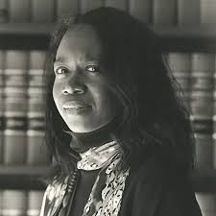
“With less than 1 percent of that census in existence (actually, only fragments from a handful of states), African Americans must turn to other records at the federal, state, and local levels to fill the gap,” says Kemp. Other records such as Immigration Records and Naturalization Records are not helpful since African American did not arrive to this country in large numbers during this period.
Blacks, she continued, cannot even rely upon vital records since many Southern States did not mandate birth and death certificates or marriage licenses until the 20th Century. For instance, she explained, “South Carolina is one of the original 13 colonies. Yet, South Carolina did not mandate marriage licenses until July 1911 and birth and death certificates until January 1915.”
Twenty-two states had state censuses during the 20 year period of 1800 and 1900. The vast majority of these states are non-Southern States (Florida and Tennessee are exceptions), meaning a sizeable percentage of African Americans between 1880 and 1900 would not have been captured by state censuses, added the co-founder of Rocky Pond Press.
Kemp has been able to trace her maternal linage to her sixth step great grandparents, who were born between 1770-1785 in Virginia. And biologically, back to a fifth great grandfather born in Virginia, circa 1800. On her paternal side, Kemp says she can trace her lineage back to a fourth great grandfather born between 1800-1808.
Blacks, she continued, cannot even rely upon vital records since many Southern States did not mandate birth and death certificates or marriage licenses until the 20th Century.
The author also offered suggestion on how to get around the 1890 Census hurdles. She added that church records may be a great resource. “One may be fortunate to find the church one's ancestors attended has an extensive church history including listing members, marriages, births, and deaths,” she said.
With caution, she added that if a church does not have such records (may be those records were lost in a fire or the secretary who maintained such records died and no one ever found where she stored the records), one could check organizations such as the Virginia Baptist Historical Society. “From experience, I can tell you that such a society has a more extensive collection on White Baptist churches versus Black Baptist churches,” continued.
In addition to formal sessions such as those held by Kemp, attendees to the annual conference learned and supported each other’s research, put faces with the names they follow on social media, swapped stories, and basked in the fun of being around other family historians. AAHGS will announce the October 2020 national conference dates and city soon.
In addition to Jones, several other authors won awards including Dr. Walter B. Curry Jr. (“The Thompson Family: Untold Stories from the Past (1830-1960)”). AAHGS recognizes books that promote African American history and genealogy. Jones told Port Of Harlem, “This accolade holds my highest regard, because my community acknowledges my dedication to sharing our stories, stewarding our resources, and celebrating our ancestors.”






